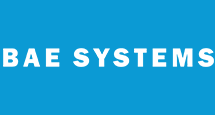Visiongain Publishes Network Security Market Report 2023-2033
25 May 2023
Visiongain has published a new report entitled Network Security Market Report 2023-2033: Forecasts by Deployment (On-Premises, Cloud), by Organisation Size (Large Enterprises, Small and Medium-Sized Enterprises (SMEs), Micro Enterprises), by Offering (Product, Service, Managed Security Service Provider (MSSP), Reseller), by Solution (Firewall, Intrusion Detection and Prevention System (IDPS), Virtual Private Network (VPN), Security Information and Event Management (SIEM), Other), by Vertical (Aerospace and Defence, Government Institutions, BFSI, IT & Telecom, Healthcare, Other) AND Regional and Leading National Market Analysis PLUS Analysis of Leading Companies AND COVID-19 Impact and Recovery Pattern Analysis.
The global network security market was valued at US$26.7 billion in 2022 and is projected to grow at a CAGR of 16.9% during the forecast period 2023-2033.
Regulatory Compliance Requirements
Stringent regulations and compliance requirements in various industries, such as finance, healthcare, and government, are driving the demand for network security solutions. Organizations need to adhere to data protection laws and industry-specific regulations, which necessitate robust network security measures.
Growing Adoption of Cloud Computing
The rapid adoption of cloud computing and the migration of data and applications to the cloud have increased the need for network security. Organizations require secure network architectures, encryption, access controls, and threat detection mechanisms to safeguard their cloud-based assets.
How has COVID-19 had a significant negative impact on the Network Security Market?
The COVID-19 pandemic has had a mixed impact on the network security market. On one hand, the increased reliance on remote work has created new security challenges for organizations, leading to increased demand for network security solutions. On the other hand, the economic slowdown and budget constraints caused by the pandemic have led some organizations to delay or cancel their investments in network security solutions.
One positive impact of the pandemic on the network security market has been the increased demand for cloud-based security solutions. With more employees working remotely, organizations are increasingly relying on cloud-based applications and services, which has led to increased demand for cloud-based security solutions. For example, cloud-based security solutions provider Zscaler reported a 46% year-over-year increase in revenue in Q3 2020.
However, the pandemic has also led to some negative impacts on the network security market. Many organizations have had to cut back on their IT budgets due to the economic slowdown caused by the pandemic. This has led to delays or cancellations of investments in network security solutions. For example, cybersecurity firm Fortinet reported lower-than-expected revenue growth in Q2 2020 due to delays in customer purchasing decisions caused by the pandemic.
How will this Report Benefit you?
Visiongain’s 426-page report provides 130 tables and 188 charts/graphs. Our new study is suitable for anyone requiring commercial, in-depth analyses for the global network security market, along with detailed segment analysis in the market. Our new study will help you evaluate the overall global and regional market for Network Security. Get financial analysis of the overall market and different segments including deployment, organization size, offering, solutions, and vertical and capture higher market share. We believe that there are strong opportunities in this fast-growing network security market. See how to use the existing and upcoming opportunities in this market to gain revenue benefits in the near future. Moreover, the report will help you to improve your strategic decision-making, allowing you to frame growth strategies, reinforce the analysis of other market players, and maximise the productivity of the company.
What are the Current Market Drivers?
Increased Adoption of Zero-Trust Architecture
In today's era of distributed work and cloud computing, the traditional "trust but verify" approach is no longer sufficient as networks extend beyond physical office boundaries. Instead, the concept of "zero trust" is gaining prominence. Zero trust involves thoroughly authenticating, authorizing, and continually validating network users before granting them access to applications and data.
To establish a zero-trust environment, organizations need to focus on robust identity management, endpoint protection, encryption, and continuous monitoring. The COVID-19 pandemic has created new opportunities for cybercriminals to breach networks, especially with the sudden shift to remote work. Therefore, it is essential for organizations to adopt a zero-trust framework and implement access control policies, authentication, and least-privileged environments to safeguard valuable data assets. While there is no one-size-fits-all solution for zero trust, organizations need to act promptly and embark on the journey towards its implementation.
The Network Security Market Driven by Increasing Cyber Threats and Attacks Worldwide
One of the primary drivers of the network security market is the escalating number of cyber threats and attacks worldwide. With the proliferation of digital technologies and the growing reliance on the internet for business operations, organizations are becoming increasingly vulnerable to cyber threats and attacks.
Cyber threats and attacks manifest in various forms, including malware, phishing, ransomware, and denial-of-service attacks. These threats can inflict significant financial and reputational damage on organizations, underscoring the criticality of implementing advanced network security solutions.
For instance, in 2021, the Colonial Pipeline, a major US fuel pipeline operator, fell victim to a ransomware attack that disrupted its operations and resulted in fuel shortages in several states. Similarly, in 2020, a cyber-attack on SolarWinds, a leading IT software provider, compromised the networks of multiple US government agencies and private organizations, highlighting the increasing sophistication of cyber threats.
To combat the growing threat of cyber-attacks, organizations are increasingly investing in advanced network security solutions such as firewalls, intrusion detection and prevention systems, and endpoint security solutions. These solutions provide advanced threat detection and prevention capabilities, enabling organizations to proactively identify and mitigate cyber threats.
Where are the Market Opportunities?
The Emergence of IoT Creates an Opportunity for Network Security Providers to Develop Tailored IoT Security Solutions
The increasing prevalence of Internet of Things (IoT) devices offers network security providers a chance to create solutions specifically designed to secure these devices and the data they generate. IoT devices are increasingly being used in critical sectors like healthcare, energy, and transportation, underscoring the significance of their security.
The growth of IoT devices poses unique challenges for network security. These devices are often deployed in remote or inaccessible locations and typically have limited processing power and memory. Moreover, they may be susceptible to cyber-attacks due to outdated or weak security protocols. This situation presents a favourable environment for network security providers to develop solutions that effectively safeguard IoT devices and their associated data.
IoT security solutions can deliver real-time monitoring, threat detection, and automated response capabilities for IoT devices. They can leverage machine learning and artificial intelligence to identify anomalous behaviour and potential security threats. Furthermore, these solutions enable centralized management and control of IoT devices, simplifying the task of managing and securing an organization's IoT infrastructure.
The Surge in Managed Security Services as Organizations Entrust Network Security Operations to External Providers
Managed Security Services (MSS) is a rapidly expanding segment within the network security market. MSS involves outsourcing security functions to third-party providers who handle the management and monitoring of an organization's security infrastructure. This allows organizations to focus on their core business activities while ensuring their network security is handled by experts.
MSS providers offer an array of services, including threat detection and response, vulnerability management, security information and event management (SIEM), and compliance management. They can also provide round-the-clock monitoring and incident response capabilities, which are critical in today's ever-evolving threat landscape.
The demand for MSS is driven by several factors, including the increasing complexity of network security, the shortage of skilled security professionals, and the need for organizations to comply with industry regulations. Additionally, MSS can often be a more cost-effective solution compared to hiring and training an in-house security team.
Competitive Landscape
The major players operating in the network security market are Akamai Technologies, Inc., Check Point Software Technologies Ltd., Cisco Systems, Inc., F5 Networks, Inc., Forcepoint LLC, Fortinet, Inc., IBM Security Services, Imperva Inc., Juniper Networks, Inc., McAfee Corp., Palo Alto Networks, Inc., Proofpoint, Inc., Sophos, Trellix, Trend Micro Inc. These major players operating in this market have adopted various strategies comprising M&A, investment in R&D, collaborations, partnerships, regional business expansion, and new product launch.
Recent Developments
• 13 April 2023, Leonardo, and Cisco Systems, have signed a Memorandum of Understanding (MoU) to expand their mutual business relationships and launch a structured collaboration in the civil and defence industry domains.
• 25 April 2023, Accenture and Palo Alto Networks has entered into collaboration to deliver joint secure access service edge (SASE) solutions powered by Palo Alto Networks® AI-powered Prisma® SASE, allowing organisations to improve cyber resilience and accelerate business transformation efforts.
Notes for Editors
If you are interested in a more detailed overview of this report, please send an e-mail to contactus@visiongain.com or call +44 (0) 207 336 6100.
About Visiongain
Visiongain is one of the fastest-growing and most innovative independent media companies in Europe. Based in London, UK, Visiongain produces a host of business-to-business reports focusing on the automotive, aviation, chemicals, cyber, defence, energy, food & drink, materials, packaging, pharmaceutical and utilities sectors.
Visiongain publishes reports produced by analysts who are qualified experts in their field. Visiongain has firmly established itself as the first port of call for the business professional who needs independent, high-quality, original material to rely and depend on.
















